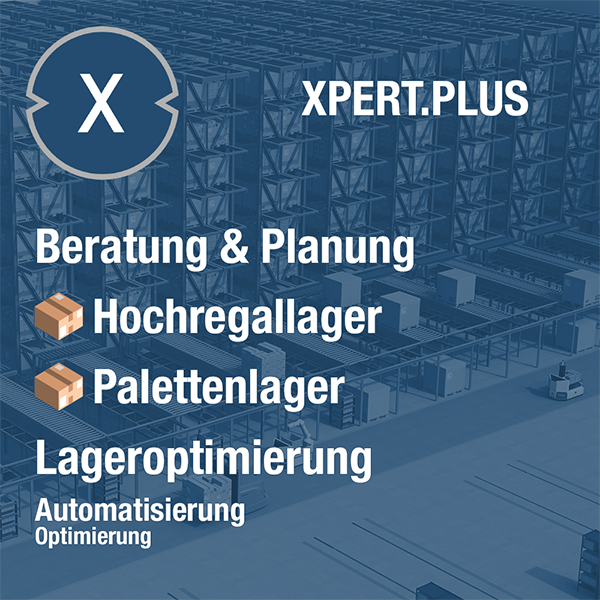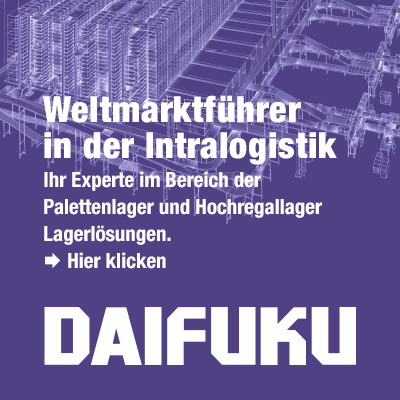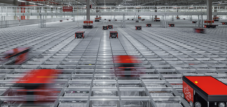Growth strategies in the e-commerce logistics market: GXO Logistics and DHL Supply Chain in the expansion course
Xpert pre-release
Language selection 📢
Published on: May 9, 2025 / update from: May 9, 2025 - Author: Konrad Wolfenstein

Growth strategies in the e-commerce logistics market: GXO Logistics and DHL Supply Chain in the expansion course-Image: Xpert.digital
E-commerce drives change: Transformation in the logistics sector
E-commerce logistics on the upswing: GXO and DHL rely on expansion and innovation
The global e-commerce logistics market is experiencing an unprecedented upswing that prompted leading logistics companies for strategic investments and takeovers. Both GXO Logistics and DHL Supply Chain have recently taken significant steps to strengthen their market position and benefit from the structural changes in e-commerce. GXO Logistics is expanding its commitment to e-commerce and at the same time opens up new growth fields in healthcare with one billion-dollar mandate. DHL Supply Chain, in turn, reinforced its e-commerce capacities especially for small and medium-sized companies by taking over IDS Fulfillment. These developments reflect the dynamic transformation of the logistics sector, which is shaped by technological innovation, growing customer demand and changed consumer expectations.
The booming e-commerce logistics market
The global e-commerce logistics market is on an impressive growth course. In 2024, the market reached a value of 521.9 billion euros, which corresponds to growth of 13.6% compared to the previous year. It is noteworthy that this value has doubled compared to 2019, the year before pandemic. Despite geopolitical uncertainties, further growth of 15.5% is forecast for 2025.
The long-term prospects are even more impressive: According to a market analysis, the e-commerce logistics market of $ 524.2 billion will grow to astonishing $ 5,340.2 billion to 2034, which corresponds to an average annual growth rate (CAGR) of 26.4%. Other forecasts are somewhat more conservative, but still assume a CAGR of over 14% between 2024 and 2032.
This growth is driven by several factors: the increasing spread of internet access, the change in consumer habits towards online shopping and a stricter competition that leads to innovations in logistics. Companies are under pressure to offer faster, cheaper and more reliable delivery options in order to win and retain customers.
Digitization and technological innovation
A crucial trend in e-commerce logistics is the comprehensive digitization of all processes. Modern warehouse management systems (WMS) today monitor goods and transport vehicles in real time. The inventory is carried out with portable RF scanners and even with drones, while computers take on warehouse loading planning, product placement and task management.
This technological advances increase transparency, shorten delivery times and ultimately improve both competitiveness and customer satisfaction. For logistics companies, this means automation of processes such as warehouse management and route optimization, which minimizes errors and lowers costs.
GXO Logistics: Growth Strategy in E-Commerce and Health Care
GXO Logistics, the world's largest pure contract logistics provider, records impressive growth. In the first quarter of 2025, the company generated sales of $ 3 billion, which corresponds to an increase of 21% compared to the previous year. This growth underlines the company's successful strategy in the expanding e-commerce market.
E-commerce as a central growth driver
GXO benefits significantly from the rapid growth of the e-commerce sector. According to the company, the e-commerce logistics from GXO is “an integral part of the logistics networks of blue chip companies around the globe”. Customers include both pure online retailers and omnichannel retailers and a growing number of manufacturers who sell directly to end users.
Malcolm Wilson, CEO of GXO, emphasized the increasing demand for e-commerce capacities and described this structural tailwind as an important growth driver of the past five years. It is noteworthy that more than half of the new orders from GXO came from the e-fulfillment area in the third quarter of 2024.
Expansion to the health sector
Strategic diversification is evident in GXOS increased engagement in the health sector. The company recently announced an important ten-year contract worth $ 2.5 billion with the British National Health Service (NHS). This agreement marks an important milestone in GXOS expansion in healthcare.
"Our successful expansion in the health sector is the result of a multi-year disciplined trade and M&A strategy for diversification in growth-strong industries and geographical areas," said Richard Cawston, Chief Revenue Officer from GXO. The contract with the NHS is intended to serve as a springboard for further growth in healthcare in the United Kingdom as well as in the USA and Europe.
European expansion and investments in Germany
GXO also shows significant growth ambitions in Europe. In Germany, the company plans to set up a 36,000 square meter, state -of -the -art warehouse in Dormagen, an important logistics location in the Düsseldorf region. This investment is part of a long -term strategy for the German market that GXO classifies as highly attractive with significant growth opportunities.
Richard Cawston, GXOS President for Europe, emphasized: "We see an increasing demand for a partnership with GXO from both existing and new customers from the areas of e-commerce, fashion and consumer goods technology due to our agility, unique skills and technical expertise".
Xpert partner in warehouse planning and construction
New opportunities for SMEs: DHL invested in fulfillment capacities
DHL Supply Chain: Expansion of e-commerce capacities through acquisitions
DHL Supply Chain, a global market leader in contract logistics, pursues an aggressive acquisition strategy to strengthen its position in the growing e-commerce segment. This strategy is particularly evident in the recent takeover of IDS fulfillment in the USA.
Takeover of IDS fulfillment to market expansion
At the beginning of May 2025, DHL Supply Chain announced the takeover of the US Fulfillment service provider IDS Fulfillment. This strategic acquisition extends the DHL network by more than 120,000 square meters (1.3 million square foot) warehouse and distribution area at strategically important locations in the USA, including Indianapolis, Salt Lake City, Atlanta and at the headquarters in Plainfield, Indiana.
This takeover is already the second e-commerce acquisition of DHL Supply Chain in the United States in 2025. As early as January, the company took over the return specialist Inmar, whereby DHL is the largest provider of return processing in North America.
Strategy 2030: E-Commerce in the center
The acquisitions are part of the long-term “strategy 2030” by DHL Supply Chain, which defines e-commerce as a central growth field. "E-commerce has been a strong growth driver for DHL in recent years and is a central part of our strategy 2030," said Patrick Kelleher, CEO of DHL Supply Chain North America.
Oscar de BOK, Global CEO from DHL Supply Chain, emphasized the long-term perspective: "In view of an annual e-commerce growth of 8% worldwide, in view of an annual e-commerce growth, DHL is targeting the expansion of its capacities to meet this market segment".
Focus on small and medium -sized companies
A special focus of DHL Supply Chain's acquisition strategy is on improving the offer for small and medium -sized companies (SME). The integration of IDS Fulfillment is intended to offer these companies better access to DHLS scalable fulfillment solutions, modern technology and a powerful transport network-especially on the US market that is difficult for many foreign providers.
Through targeted investments in infrastructure and service, the company in particular wants to make it easier for small and medium -sized retailers to get started with international markets. This strategy underlines DHL's commitment to act as the preferred logistics partner for companies of all sizes.
Meaning for the industry landscape and customers
The expansion strategies of GXO Logistics and DHL Supply Chain have far -reaching effects on the logistics industry and its customers. Both companies position themselves as the leading provider in an increasingly digitized and technology -driven market.
Technological differentiation as a competitive advantage
Both GXO and DHL rely on technological innovation to differentiate themselves in competition. GXO emphasizes its “agile technology”, which reacts flexibly and quickly to rising customer expectations. From reliable order processing to complex sku management to 360-degree return logistics, GXO proactively supports its customers with data-based decisions.
DHL invests similarly in modern technologies to provide its customers competitive advantages. The integration of IDS Fulfillment is intended to provide small and medium -sized companies access to DHLs Modern, precisely fitting logistics solutions. This technological competence is increasingly becoming a decisive factor in the selection of logistics partners.
Scale advantages and global reach
The expansion strategies of both companies aim to use scale advantages and expand their global reach. GXO is already working in 15 countries and serves customers from various industries, including German companies such as Henkel, BASF, Bayer, Obi, S.Oliver and online retailers such as Zooplus.
DHL in turn emphasizes his ability to offer "global e-commerce solutions with local expertise and reach". This combination of global presence and local competence becomes particularly important for companies that want to expand internationally.
Future prospects and trends of e-commerce logistics
The strategies of GXO Logistics and DHL Supply Chain reflect broader trends that will shape the future of e-commerce logistics. A look at these trends provides information about the further development of the sector.
Progressive digitization and automation
The digitization of the logistics processes will accelerate in the coming years. Warehouse Management Systems are increasingly optimized through artificial intelligence and machine learning. According to industry experts, the automation of processes such as warehouse management and route optimization will minimize errors and reduce costs associated with manual work, fuel and storage.
At the new location in Germany, for example, GXO plans to use automation and adaptive technologies such as Goods-to-person as well as autonomous, mobile robots according to the requirements of customers.
Sustainability as a central factor
Sustainability is becoming an increasingly important aspect of e-commerce logistics. According to industry analyzes, sustainability-sustainability-has been the trend topic in e-commerce for several years, and on several levels: ecologically, economical and social.
GXO demonstrates this trend with its new location in Germany, which is striving for DGNB gold certification and will have a number of energy-efficient features. This orientation towards sustainability corresponds to the growing expectations of consumers and can represent a competitive advantage.
Blockchain and innovative technologies
Innovative technologies such as blockchain will keep moving into the logistics industry. Between 2024 and 2032 it is expected that the use of blockchain in logistics will increase with an annual growth rate of 39.19%. This technology promises improved transparency and security in the supply chain.
Growth in logistics: Why the e-commerce boom continues
The strategic expansions of GXO Logistics and DHL Supply Chain underline the dynamic development of the e-commerce logistics market. Both companies have recognized that the success in this industry depends on technological innovation, strategic acquisitions and the ability to adapt to the rapidly changing consumer expectations.
With its investments in e-commerce and healthcare, GXO Logistics shows a diversified growth strategy, while DHL Supply Chain, through targeted takeover, how IDS Fulfillment strengthens its position in the e-commerce sector and addresses particularly small and medium-sized companies. Both strategies reflect the increasing importance of e-commerce as a growth driver in global logistics.
With a forecast annual growth of up to 26.4% by 2034, the e-commerce logistics market remains an extremely attractive field for investments and innovations. In this competitive environment, companies that position themselves early and invest in advanced technologies as well as sustainable solutions will have the best chance of benefiting from the ongoing digital transformation of trade.

Xpert.Plus warehouse optimization - high-bay warehouses such as pallet warehouses consulting and planning
We are there for you - advice - planning - implementation - project management
☑️ SME support in strategy, consulting, planning and implementation
☑️ Creation or realignment of the digital strategy and digitalization
☑️ Expansion and optimization of international sales processes
☑️ Global & Digital B2B trading platforms
☑️ Pioneer Business Development
I would be happy to serve as your personal advisor.
You can contact me by filling out the contact form below or simply call me on +49 89 89 674 804 (Munich) .
I'm looking forward to our joint project.
Xpert.Digital - Konrad Wolfenstein
Xpert.Digital is a hub for industry with a focus on digitalization, mechanical engineering, logistics/intralogistics and photovoltaics.
With our 360° business development solution, we support well-known companies from new business to after sales.
Market intelligence, smarketing, marketing automation, content development, PR, mail campaigns, personalized social media and lead nurturing are part of our digital tools.
You can find out more at: www.xpert.digital - www.xpert.solar - www.xpert.plus


























